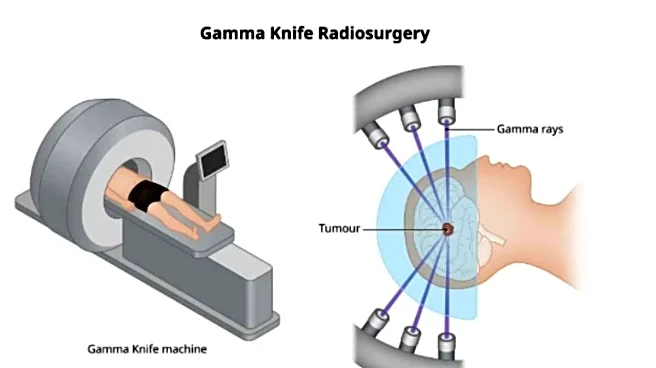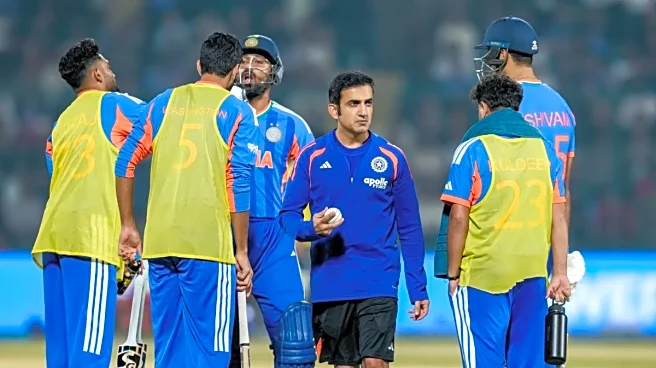In a major leap for neurological healthcare, the Ram Manohar Lohia Institute of Medical Sciences (RMLIMS) in Lucknow is set to house Uttar Pradesh’s first Gamma Knife facility, a sophisticated non-surgical
system for treating complex brain disorders. Once operational, the centre will allow doctors to perform high-precision brain procedures without a single incision, using focused beams of radiation instead of scalpels.
A Leap Beyond the Scalpel
Officials with RMLIMS said traditionally, conditions such as brain tumours, vascular malformations, or movement disorders like Parkinson’s have required open brain surgery, which carries risks of infection, bleeding, and long hospital recovery. The Gamma Knife, despite its name, involves no knife at all—it uses multiple converging beams of gamma radiation to precisely target abnormal tissue deep within the brain while sparing surrounding healthy areas.
At RMLIMS, the new system employs 209 micro-focused beams with sub-millimetre accuracy, making it one of the most advanced forms of stereotactic radiosurgery available today. Patients can often return home the same day, avoiding the trauma and recovery time of open surgery.
The Gamma Knife project was announced in late 2022, but implementation faced multiple hurdles, including high costs, technical approvals, and infrastructure construction. The Uttar Pradesh government sanctioned approximately Rs 49 crore, of which Rs 46 crore is earmarked for the machine and Rs3 crore for the radiation bunker and related infrastructure.
The foundation stone for the facility was laid on RMLIMS’s fifth Foundation Day, alongside the inauguration of a new Advanced Neurosciences Centre with 200 general and 60 ICU beds. The installation is now in its final phase, and officials expect the system to become operational within the next six months.
How Gamma Knife Works
The Gamma Knife delivers focused gamma rays through a stereotactic head frame, guided by MRI imaging to ensure pinpoint accuracy. The beams converge at a specific target inside the brain, destroying or disabling the tissue causing symptoms—all without opening the skull.
Doctors say this technology can be used to treat brain tumours, arteriovenous malformations (AVMs), trigeminal neuralgia, epilepsy, and movement disorders such as essential tremor and Parkinson’s disease. The treatment typically lasts a few hours, and patients can resume daily activities within a day or two.
Until now, those requiring Gamma Knife therapy had to travel to Delhi, Mumbai, or Bengaluru—a journey many could not afford. The Lucknow facility will now bring world-class neuro-treatment closer to home.
The major advantages include minimal risk of infection, shorter hospital stays, and greater precision in targeting diseased tissue while sparing vital brain functions. Moreover, patients who are medically unfit for traditional brain surgery will finally have an option for treatment without anaesthesia or surgical incision.
While the installation of the Gamma Knife at RMLIMS marks a historic advancement for Uttar Pradesh’s healthcare system, several challenges lie ahead before the facility becomes fully operational and accessible to patients. One of the foremost hurdles is the high level of technical and staffing demands. Operating the Gamma Knife requires a multidisciplinary team comprising neurosurgeons, radiation oncologists, medical physicists, imaging specialists, and trained technicians who can manage the system’s complex calibration and maintenance. Recruiting, training, and retaining such specialized personnel will be critical for the centre’s success.
Another key challenge involves regulatory compliance and safety clearances. Since the Gamma Knife uses high-energy radiation, strict adherence to Atomic Energy Regulatory Board (AERB) standards is mandatory. The radiation bunker, shielding, and patient safety protocols must undergo multiple layers of inspection before treatment can begin. Any delay in obtaining these approvals could push back the inauguration timeline.
Another challenge concerns awareness and referral networks across the state. For a highly specialised technology like the Gamma Knife to be effectively utilised, neurologists and general physicians in district-level hospitals must be aware of its indications and patient suitability. Building referral linkages and spreading awareness among the medical community will determine how many patients benefit from the centre.
A New Chapter for UP’s Healthcare
The upcoming Gamma Knife unit is part of a broader plan to make RMLIMS a centre of excellence in neurosciences, along with facilities for robotic surgery, advanced radiology, and AI-based diagnostics. Deputy chief minister Brajesh Pathak, who oversees the state’s medical education portfolio, said the government’s focus is on “bringing world-class treatment facilities to Lucknow so that no patient needs to travel out of state for critical procedures”.
If all goes as planned, Uttar Pradesh will soon join a select group of Indian states offering incision-free brain treatment, a milestone that could redefine neuro-care in the heartland.





/images/ppid_a911dc6a-image-177092774715746114.webp)

/images/ppid_a911dc6a-image-177092767520012684.webp)
/images/ppid_a911dc6a-image-177092763347449403.webp)
/images/ppid_a911dc6a-image-177092652580356823.webp)




